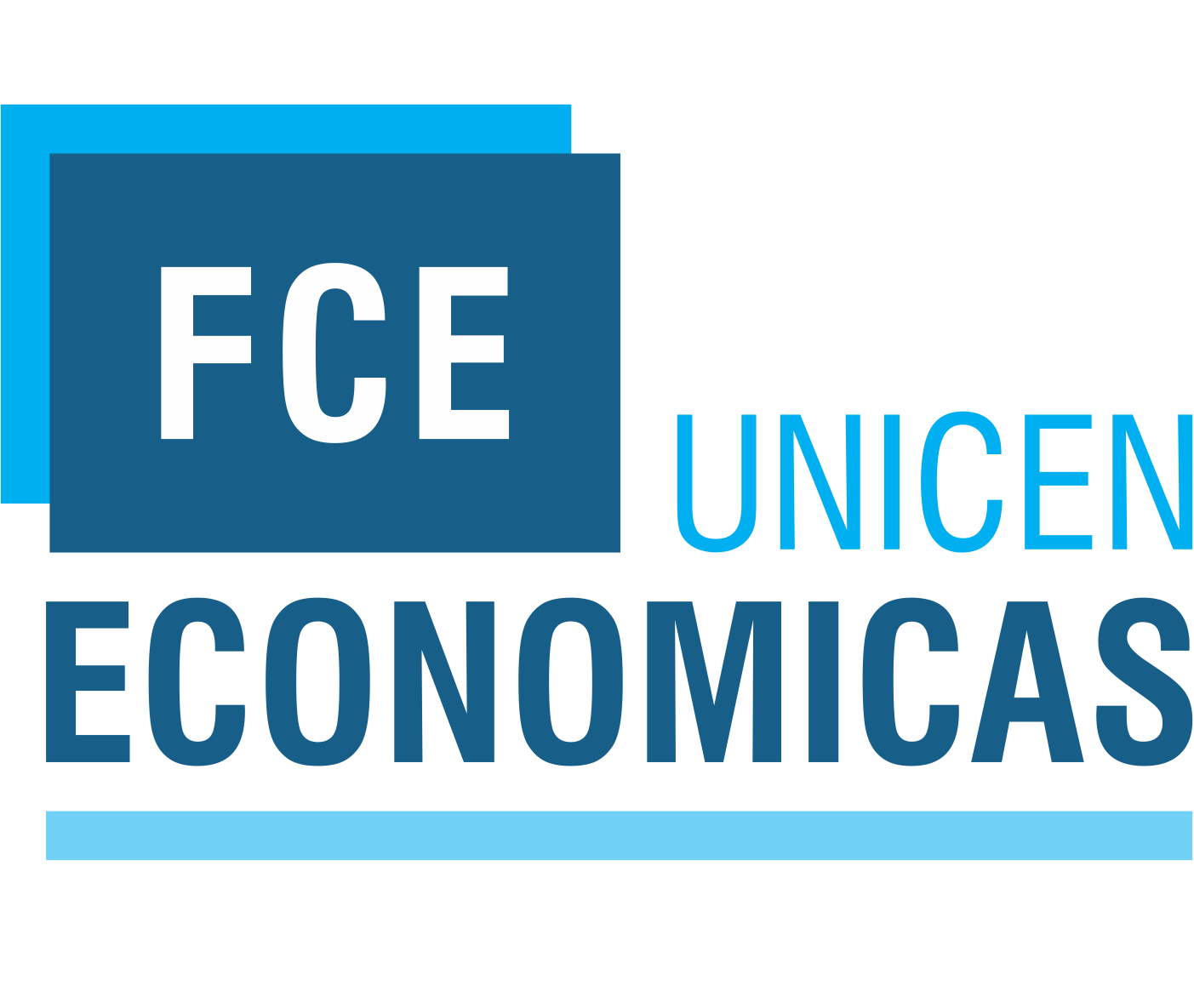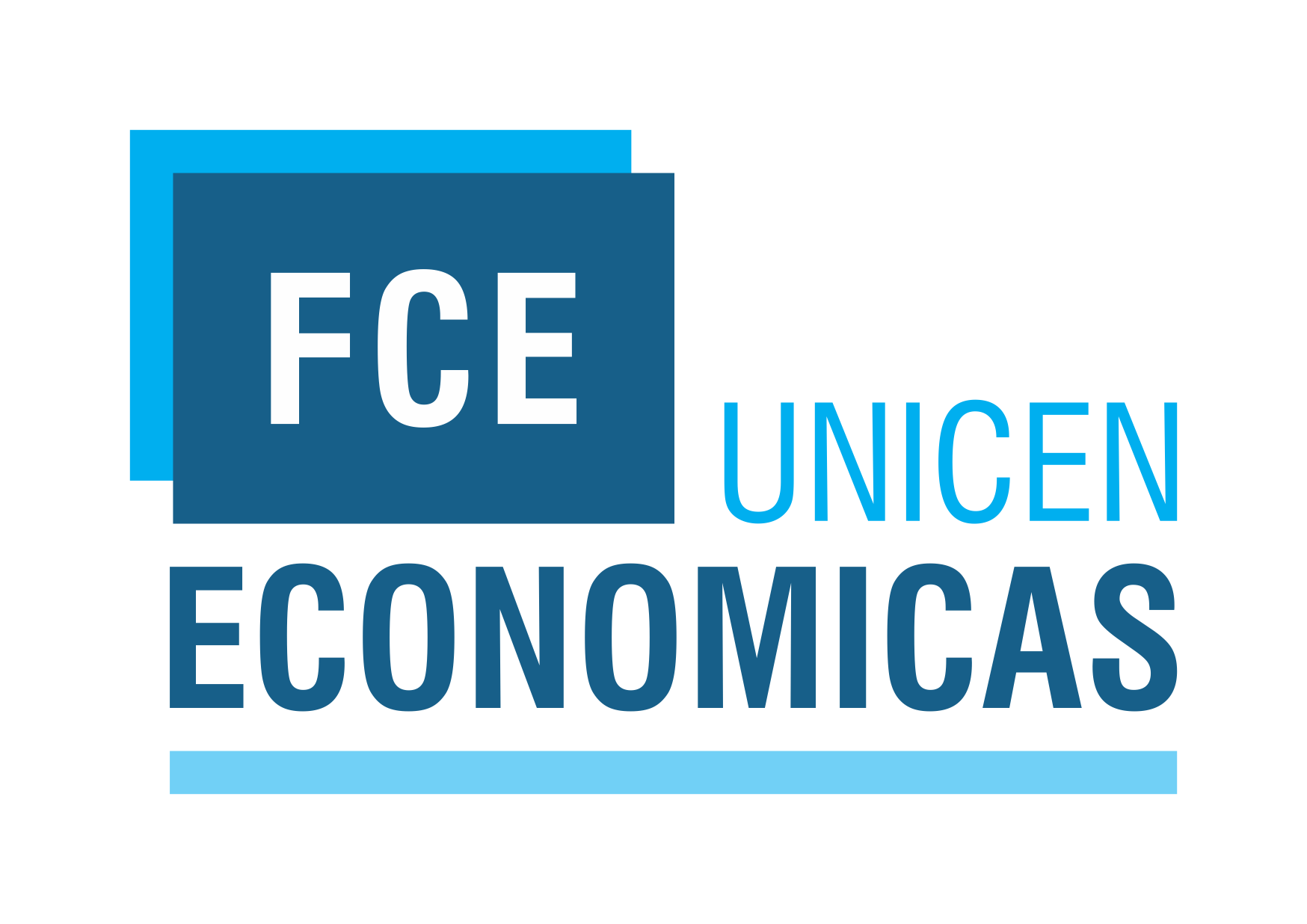CICLO BÁSICO
Introduction to Economics
Field of economical study. Methods, theories, assumptions and models. Microeconomic and macroeconomic. Consumer behavior: preferences, budget constraint, utility maximization, and consumer surplus. Company behavior: production technology, returns to scale, costs and profit maximization. The markets and their balance: supply and demand. Elasticity. Macroeconomic: assumptions and macroeconomic variables, condition of macroeconomic balance.
Lecture hours: 80 hs.
Mathematics I
Logical foundations of mathematics. Sets. Real numbers. Functions and limits. Derivatives. Functions of several variables. Applications.
Lecture hours: 80 hs.
Administration
Naturaleza de las organizaciones: perspectivas conceptuales desde distintos enfoques. La Administración como disciplina de observación, análisis y gestión de las organizaciones. Evolución del pensamiento administrativo. El trabajo directivo/gerencial: niveles, funciones, roles y competencias. Naturaleza del entorno organizacional. Procesos Organizacionales. Toma de decisiones. Planificación. Organización. Dirección. Control. Responsabilidad Social del Administrador.
Lecture hours: 80 hs.
Basic Accounting
Accounting information: users and accounting reports. Fundamentals of accounting. Entities: resources and sources; operations and economical facts. Supporting documents. Accounting equity: components and their variations. The accounting process: registration, processing and reporting.
Lecture hours: 80 hs.
Administration System
The organization as a system. Organizational structure: Design of the structure; types of structures. Operative organizational systems. Internal control and its incorporation in the organizational processes. Design of the administration systems; applied systems, exchange methodologies. Supportive technologies to the organizational processes: Integrated systems of management and Software for the design of processes.
Lecture hours: 80 hs.
Workshop on the developing of Statistical Skills
Introduction. Basic concepts. Descriptive statistical. Introduction to the multidimensional descriptive analysis. Index numbers. Probability. Random variables. Probability distribution. Sampling.
Lecture hours: 80 hs.
Institutions of Public Law
The law. Political sciences. Constitutionalism. Constitutional supremacy. Control. National Constitution. Background. Declarations, rights and guarantees. Representative, republican and federal system. Powers. Administrative law. Subjects of law. Facts, acts and administrative contracts. Regulation. Public services. State assets. Administrative procedure. Judicial control. Supervisory bodies of public administration.Lecture hours: 80 hs.
Philosophy and Logic
The greatest problems of philosophy. Ancient philosophy, Medieval, Modern and Contemporary. Relations between Social Sciences and Philosophy. Scientific method. Object of logic. Truth and validity. Logical form. Propositional logic.Simple and compound statements. Connective. Truth tables. Tautologies, contradictions and contingencies. The deduction in propositional logic. Tests of validity and invalidity. Logic of predicates. Propositional functions. Quantifiers.
Lecture hours: 80 hs.
Skills Development Workshop I
40 hs.
Skills Development Workshop II
40 hs.
Mathematics II
Series and successions. Integration. System of equations. Differential equations and in differences. Vectors and matrices. Applications.
Lecture hours: 80 hs.
Business Law I
The company and subjects; the company and the equity; the company and contracts; the company and the transfer of rights mortis causa. Contracts in the business activity: contracts in general. Contractual networks. Preliminary contracts. Adhesion contracts. Consumer contracts. Particular contracts: Trading, barter, supply, location, leasing, work and services. Transport. Mandate and consignment. Brokerage. Deposit. Banking contracts. Mutual. Bail. Factoring contract. Contracts concluded in trade or business markets. Current account. Escrow contract. Associative concession contracts and franchise Agency. Betting and gaming contracts. Cession of rights. Arbitration.
Lecture hours: 80 hs.
Management Information System
The importance of the information in the management function. Classification of the information and the systems of the Strategic information systems. Indicators of the management and the results. Structure of a Management Information System. Requirements of a Management Information System. Management information on customer relationships. Management information on performance. Typical Applications Systems.Hardware and Software. Networks: Database. Development Process of business applications systems, Acquisition, implementation and maintenance of Information Systems. Office tools. Applications related to the profession at National, Provincial and Municipal level. Governance of Information Technology. Information security and business continuity.
Lecture hours: 80 hs.
Microeconomic Analysis
Fixation of prices and production volumes under different market structures (perfect competition, monopoly, oligopolies and other configurations with market power). Market of production factors. General equilibrium, economic efficiency and welfare economics. Externalities. Public goods. Communal property. The intertemporal choice and the asset market. Risk and uncertainty. Models with asymmetric information. Topics related to the games theory. The economic basis of the international trade: comparative advantage, theories and theorems.
Lecture hours: 80 hs.
Quantitative Techniques
Introduction to Statistical Inference. Sampling distribution. Estimation. Hypothesis Testing. Variance analysis. Linear regression analysis. Independence analysis. Integer linear programming and dynamic. Simulation.
Lecture hours: 80 hs.
Economic History
The major trends and its essential milestones. Economic, technological, political, social and managerial dimensions of the great historical changes. The effects on business activity. Business History. Projections and prospects for the future, approaches to the XXI century.
Lecture hours: 80 hs.
Language Workshop I
40 hs.
Workshop on Managing IT tools
40 hs.
Financial Mathematics
Capitalization and update. Rates. Valuation of financial successions. Notions of actuarial calculation. Loan repayment system. Applications borrowing.
Lecture hours: 80 hs.
Macroeconomic Analysis
Macroeconomic magnitudes. Spending and aggregate demand. The aggregate supply and the working market. Financial institutions and financial markets. The loanable funds market. Supply and monetary demand and the equilibrium interest rate. The inflationary phenomenon. The external sector, the balance of payments and the exchange rates. Exchange rates regimes and the foreign exchange market. The process of economic growth, the institutional environment and their sources.
Lecture hours: 80 hs.
Analysis and Interpretation of Financial Statements
Accounting reports:Identifying their components according to targets and users. Historical and projected financial information. Relevant measurement issues Measurements Units: Current Cost/ Values and their associated results; historical currency and constant currency and its associated results. Basic Financial Statements: identification and reading of its main components. Analysis of accounting information: Internal and external analysis. General analysis procedure. Particular procedures of financial analysis. Particular procedures of economic analysis. Analysis of projected accounting information.
Lecture hours: 80 hs.
Industrial Organization
Business nature. Economies of scale and scope. Learning curve. Integration and diversification. Investigation and development. Advertising. Network economies. Company, transaction cost and institutional perspective. Market Structure, industry concentration. Limitation on market entry. challenge markets, predatory pricing and price discrimination. Auctions.
Lecture hours: 80 hs.
Language Workshop II
40 hs.
PROFESSIONAL PERIOD
Business Law III
Fundamental principles of labor law related to business; Labor Contract Law and its main derivatives; Small and Medium Enterprises. - Work accidents. Preventive procedure for crisis in companies. Business relationships with trade unions..
Lecture hours: 80 hs.
Public Administration
Financial administration of the State, legal framework, structures, agencies and state administration processes. New approaches of the public management. Strategic planning in the public sector. Budget and budgetary control. Management control. Audit. Ethics and Transparency in Public Management.
Lecture hours: 80 hs.
Econometrics and Modelling
Generalized linear models. Multiple regression models. Time series models. Nonparametric statistics. Multivariate analysis. Simulation and Monte Carlo method.
Lecture hours: 80 hs.
Logistic and productive organization
The role of operations; operative and logistic processes: Management, Analysis, quality and indicators. Operative planification, Programming and optimization methods, inventory management and supply chain management.
Lecture hours: 80 hs.
Language - International Exam Preparation (Workshop)
40 hs.
Innovation and Regional Development
Innovation, productivity and competitiveness. Systemic competitiveness. National, sectoral, regional and local Innovation systems. Forms of organization of production: Productive chains, consortia, clusters, poles, parks (technological and industrial) Global chains of value. Collective efficiency. Methodology of analysis and strategic management of production chains and chains. Sectoral learning patterns and technological change. Weaknesses and distortions of different chains.Sectoral support politics.
Lecture hours: 80 hs.
Corporate Finance
Financial function in companies of different sizes. Financial Aim. Financial Goals. Indicators. Optimization of investment and financing decisions. Working Capital Management.
Lecture hours: 80 hs.
Financial Law and Capital Markets
Banking Law and right in the financial system. Regulation and entities. Active and passive operations. Prudential regulations. Capitals Market Law, regulation and entities. Collective investment products. Specific regime for Pymes. Exchange Market, regulation. Prevention of Money Laundering and terrorist financing, regulation.
Lecture hours: 80 hs.
Information Technology
New paradigms and technology trends; knowledge management; Internet business. Generation of new businesses based on technology. Technologies that affect non technological or traditional businesses. Technological tools for business intelligence, tools to share information and knowledge. Technological tools and reengineering; Digital Marketing, Social Media; Management Software and customer relationship; e-government and technologies for the public management.
Lecture hours: 80 hs.
Economic Policy
Macroeconomic policies. Fiscal policy, Economics of Public Debt and social security. Fiscal federalism. Monetary politics, monetary program. Financial crisis and stabilization programs. Microeconomic and sectoral policies. Regulatory regimes and incentives. Public services. Regulatory instruments of the international commerce. Regulation of the financial sector. Sectoral politics. Economic development.
Lecture hours: 80 hs.
Asset Finances and Financial Markets
Financial system. Financial assets. Markets. Equity investments: Portfolio theory: risk and efficiency, diversification, efficiency of the market and valuation of assets. Fixed income assets: valuation and portfolio management. Risk rating. Initial public offer. Public Offers of acquisition . Financial institution management
Lecture hours: 80 hs.
Introduction to Taxation
Public Finances: Public incomes, tax and non-tax resources. Principles of taxation: economic and constitutional. Tax law: concept of chargeable event, tax liability. tax law constitutional: Main forms of taxation legislation in Argentina: Rent: consumption, heritage and circulation. Taxation on wages.
Lecture hours: 80 hs.
Costs for decision making
General theory of cost: principles. Strategic and tactic planning. Cost models: historic and predetermined, completed and variable. Cost components. Predetermined costs: normalized and standards. Production costs, commercial and financial. Marginalism techniques- Application, tools. Cost for decision making. New techniques and management tools.
Lecture hours: 80 hs.
Professional supervised Practice 100 hs.
Managerial Economics
Behavioral and informational economics. Marginal analysis and elasticity. Investment decisions: Certainty, risk and uncertainty. Financial decisions. Methodologies for project formulation in national and multilateral programs. Private and socioeconomic criteria project evaluation. .
Lecture hours: 80 hs.
Research Methodology
Management based on the evidence. Approaches. Formulation of the research idea. Definition and justification of the problem. Objectives and background to the study. Research Viability. Reseach design. Plagiarism and intellectual honesty.
Lecture hours: 80 hs.
Introduction to data analysis and DataMining
Stages of Knowledge Discovery in Databases. Integral Data Mining Process. Use of knowledge. Tools and Applications in the business area.
Lecture hours: 80 hs.
Professional Practice
Profession of the Public Accountant. Incumbencies. Responsibilities. Fees. Professional ethics. Professional practice: Regulations in force at the national level and in the Province of Buenos Aires. FACPCE, CPCEPBA y CSSPCEPBA. Professional Practice Organization: individual exercise. Partnerships between professionals. Relation of dependence. Performance of the Public Accountant in the judicial field: Surveys and certified copies. Intervention in precautionary measures. Settlement of damages and accidents. Distribution Account. Dissolutions and liquidations. Accountability. Technical consultant. Performance of the Public Accountant in the extrajudicial field: Societies, civil associations and foundations. Special contracts. Transfer of goodwill.
Lecture hours: 80 hs.




